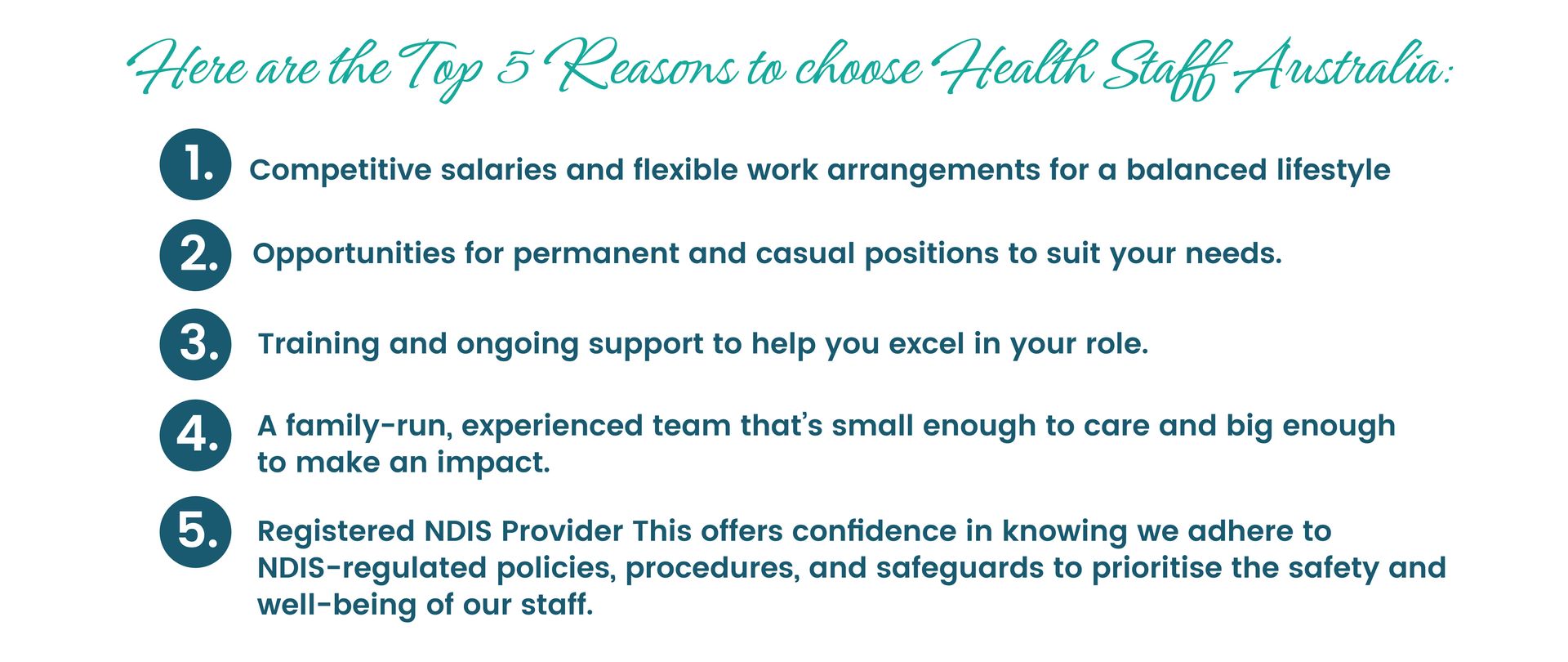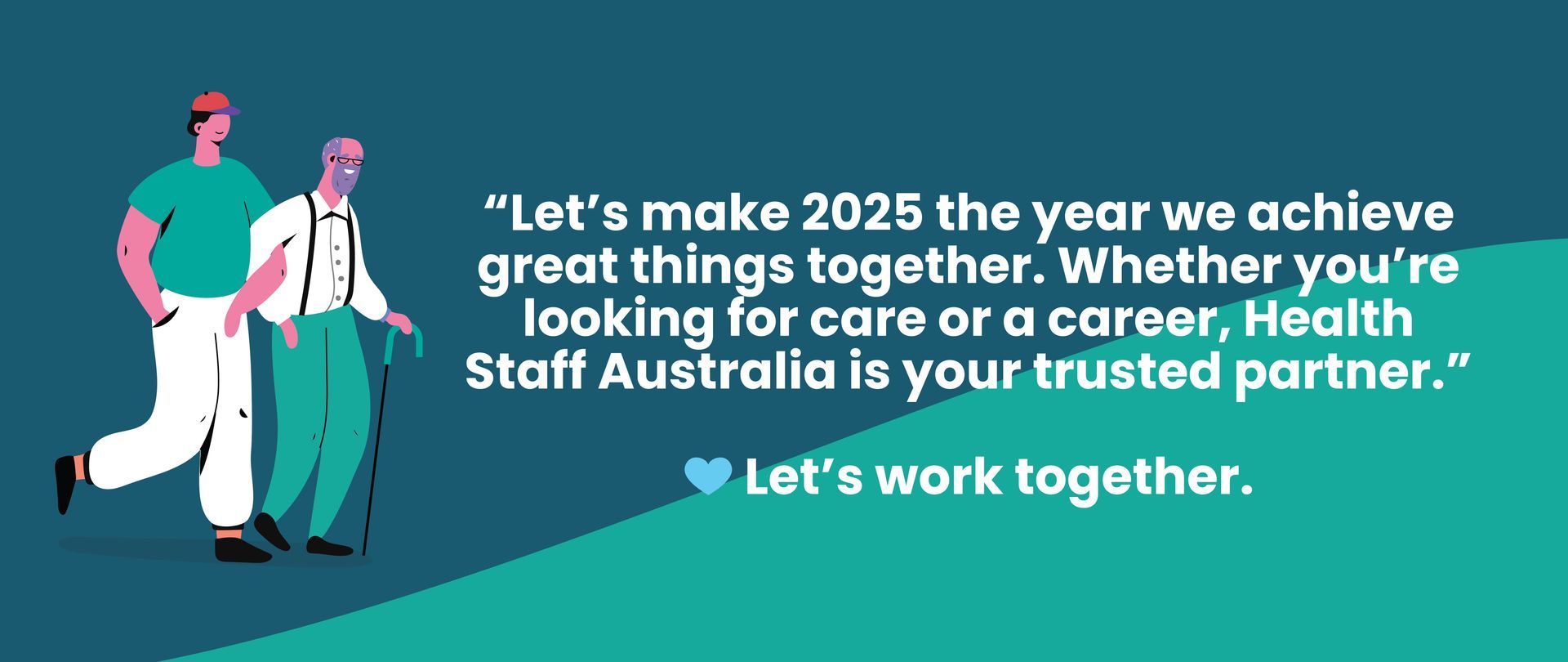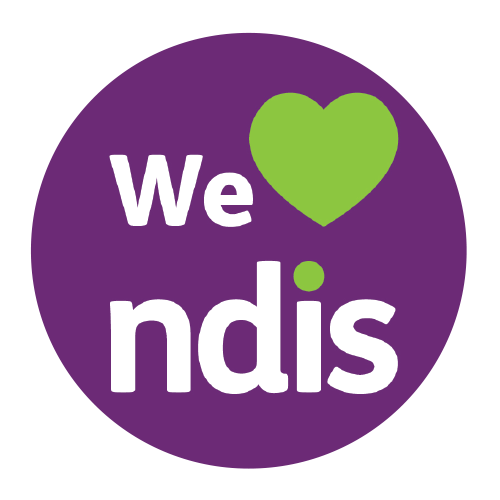Why Choose Health Staff Australia in 2025?
At Health Staff Australia, we believe care goes beyond just providing a service—it’s about making a meaningful difference in people’s lives. As a Registered NDIS Provider, we’ve built a reputation for delivering the ultimate care, tailored to meet the unique needs of every individual. Whether you’re seeking exceptional support services or rewarding career opportunities, we are here to help you achieve your goals.
Our family-run business operates with the heart of a small team but the expertise of a company with years of experience. Guided by our motto, "We put people first," we deliver reliable and friendly care that makes our clients feel valued every step of the way. From support worker opportunities to nursing jobs, we are here as an all rounded healthcare provider company!

At Health Staff Australia, we firmly believe that Happy Support Workers equal Happy Clients. By fostering a supportive, rewarding, and collaborative environment for our team, we ensure that they bring their best selves to the incredible work they do every day. This positive energy and dedication directly translate into exceptional care and support for our clients, creating a ripple effect of happiness and well-being. When you join Health Staff Australia, you’re not just part of a team—you’re part of a family that values your growth, well-being, and success.




CONTACT FORM
We will get back to you as soon as possible.
Please try again later.
Powered with 💛 by Shazamme


